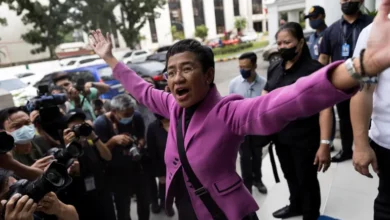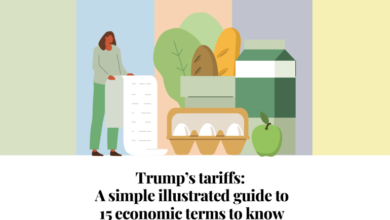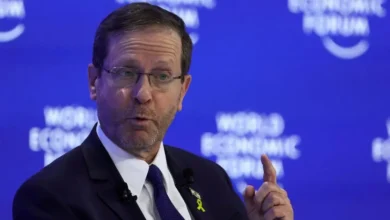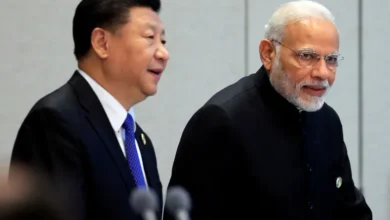Trump says he is planning 100pct tariff on foreign films

President Donald Trump announced Sunday that he plans to impose a 100 percent tariff on films produced overseas, extending his restrictive trade policies on US imports to the entertainment sector for the first time.
In a post on Truth Social, the American leader said he was directing the Commerce Department and his trade representative to “immediately begin the process of instituting” the levy on foreign movies. “WE WANT MOVIES MADE IN AMERICA, AGAIN!” Trump continued.
The president also positioned foreign productions as a national security threat, saying other nations were using films for messaging and propaganda.
Trump’s post followed meetings the president had over the weekend with actor Jon Voight and his manager, Steven Paul.
They met with Trump at his Mar-a-Lago Club, according to people familiar with their visit who asked to not be identified because the meetings were private.
Voight and Paul presented the president with their plans for more federal tax incentives for US film and TV production. Their proposals include expanding existing tax credits and bringing back ones that have expired. The Voight group didn’t propose tariffs as part of their plan, but the president talked about those levies at their meetings. No specifics on the tariffs were discussed.
In January, Trump appointed Voight along with actors Mel Gibson and Sylvester Stallone to be special ambassadors to Hollywood with the goal of boosting US jobs.
It’s not clear how such a tariff would work, nor how such movies would be valued for tariff collection purposes. Many films from Hollywood studios involve global production, including shooting locations in foreign countries and post-production work that can be done anywhere in the world. Other unanswered questions include whether the fee applies to films already shot, but not yet released, or only new productions.
Upcoming releases that include extensive foreign locales include Walt Disney Co.’s The Fantastic Four: First Steps, which was shot in the UK and Spain, and Universal Pictures’ Jurassic World Rebirth, with locations in Thailand, the UK, Malta and the US.
The action follows a move by China last month to “moderately reduce” the number of Hollywood films allowed in the country in retaliation for Trump’s aggressive tariffs on the US rival. The China Film Administration said in April that the restrictions would “inevitably further reduce the domestic audience’s favorability toward American films.”
While the US film industry is the most influential in the world, foreign films have seen a rise in popularity in recent years, drawing award-winning acclaim. The South-Korean thriller Parasite, for instance, won four Academy Awards, including the coveted Best Picture category in 2020.
The film and TV industry supported some 2.3 million jobs in the US in 2023, according to the Motion Picture Association trade group. The association didn’t respond to a request for comment on Trump’s tariffs made outside of regular working hours.
Film and TV work in the US has contracted in recent years for a number of reasons. Media companies have cut back on spending in an attempt to boost their profits as they shifted from traditional TV to streaming services. Those streaming services are expanding globally and looking to produce more films for foreign markets.
Spending on film and TV production in the US fell 28 percent between 2021 and 2024, according to data from the research firm ProdPro. Other countries, such as Canada, Australia, and the UK, are seeing an increase in film and TV production, due in part to attractive tax incentives and lower production costs.
Movie and TV filming in the greater Los Angeles area declined 22 percent in the first quarter, reflecting California’s continued loss of business to other areas.










